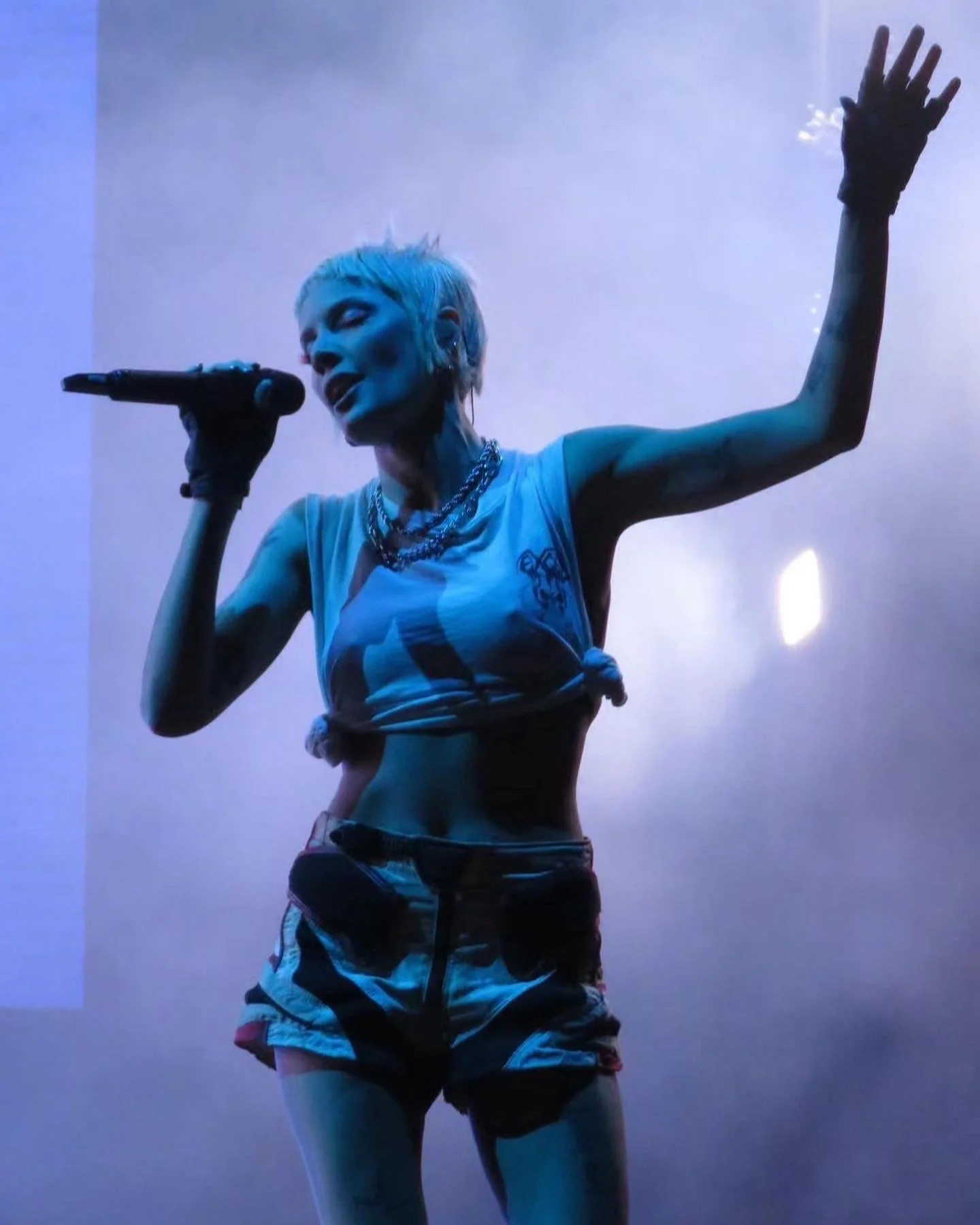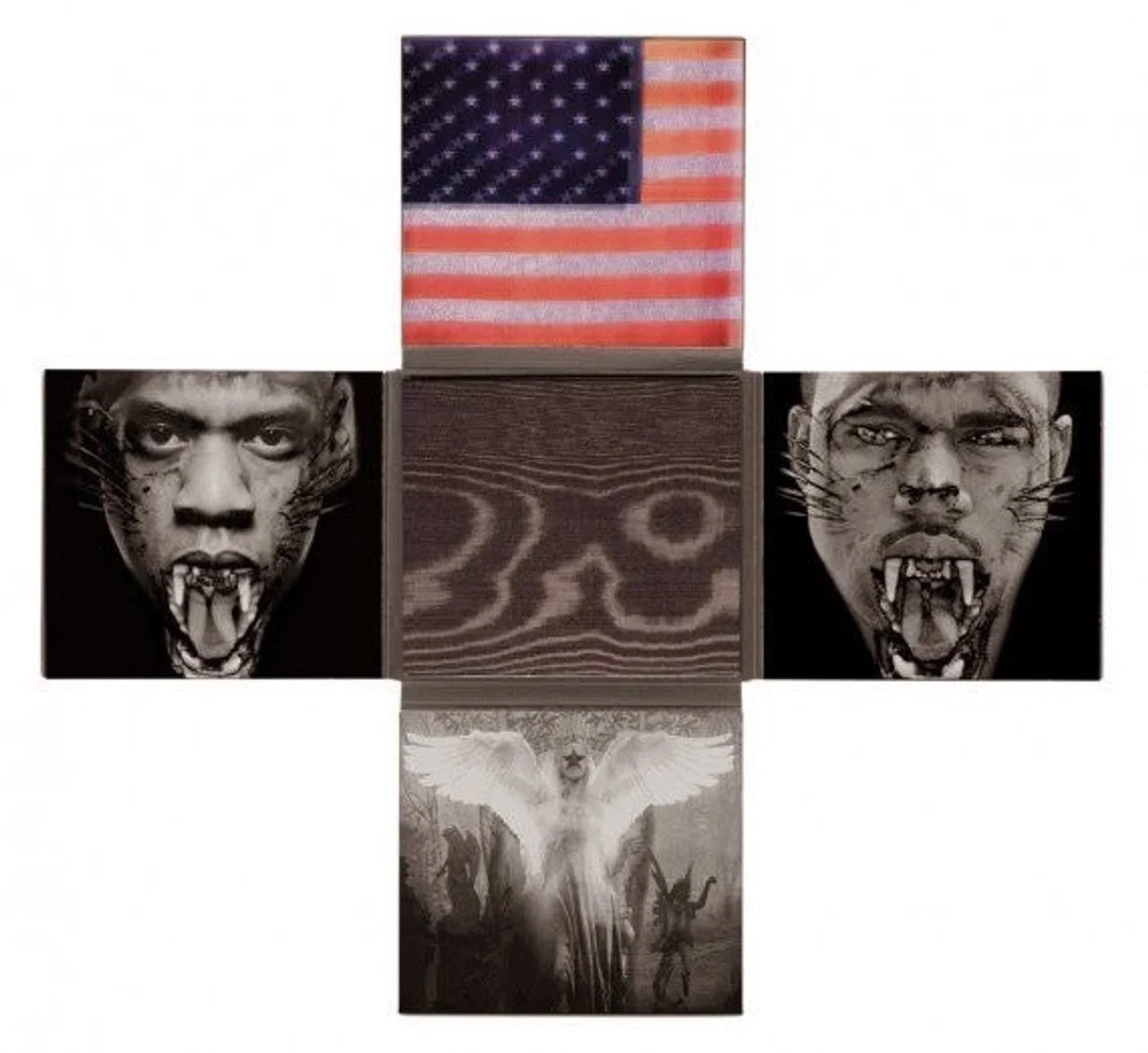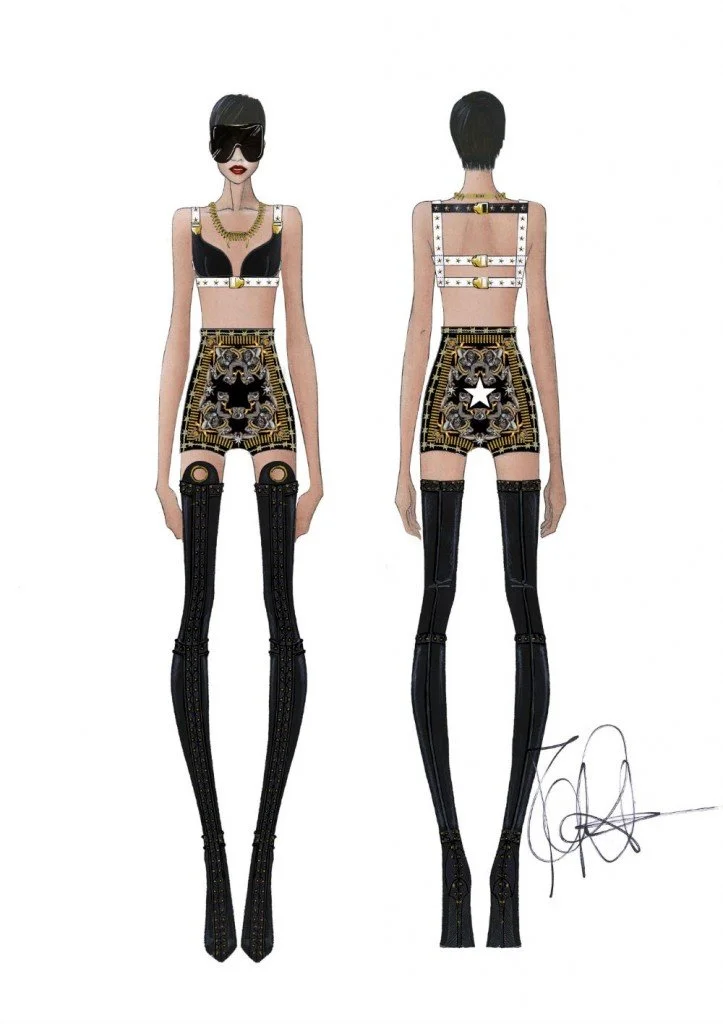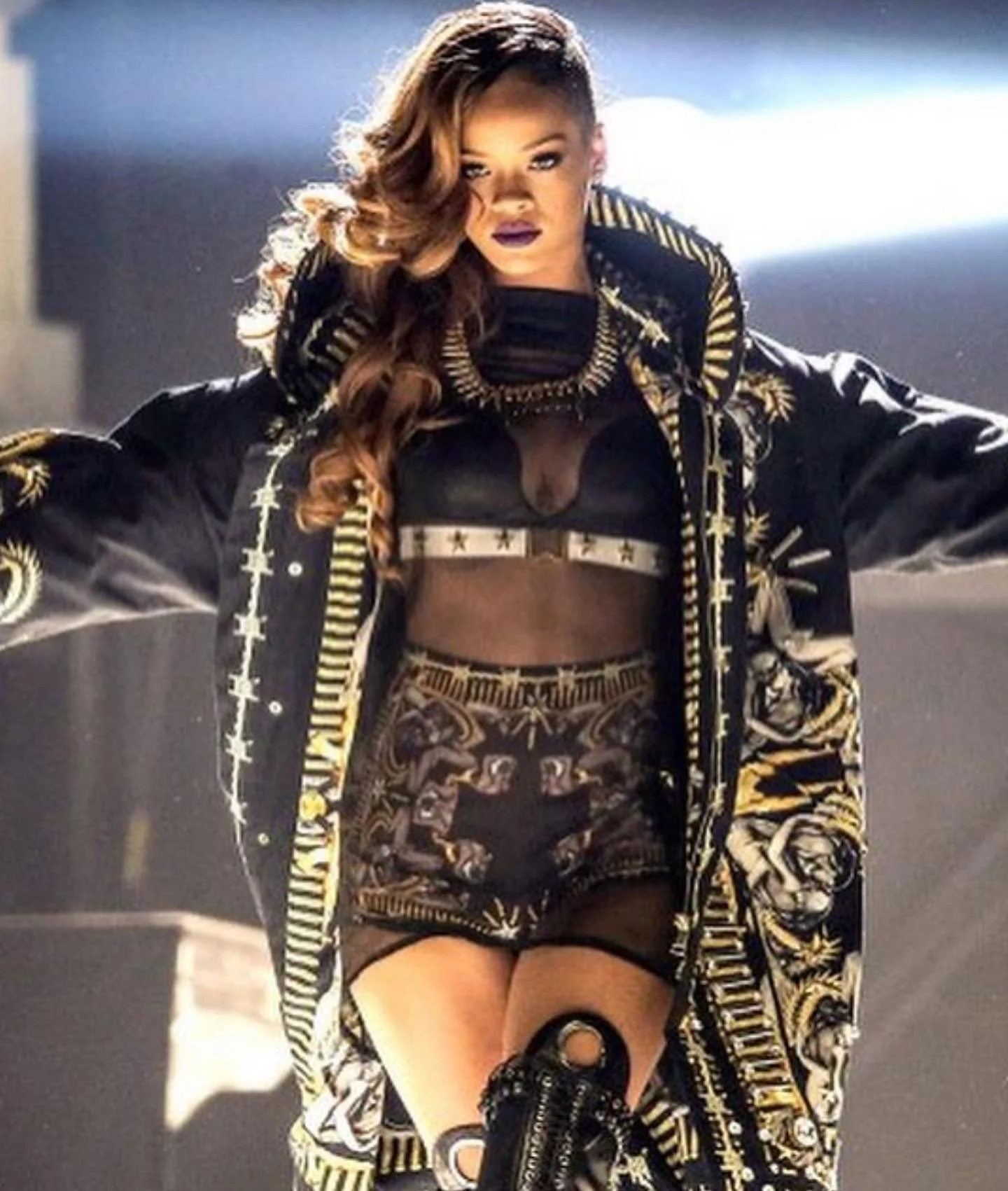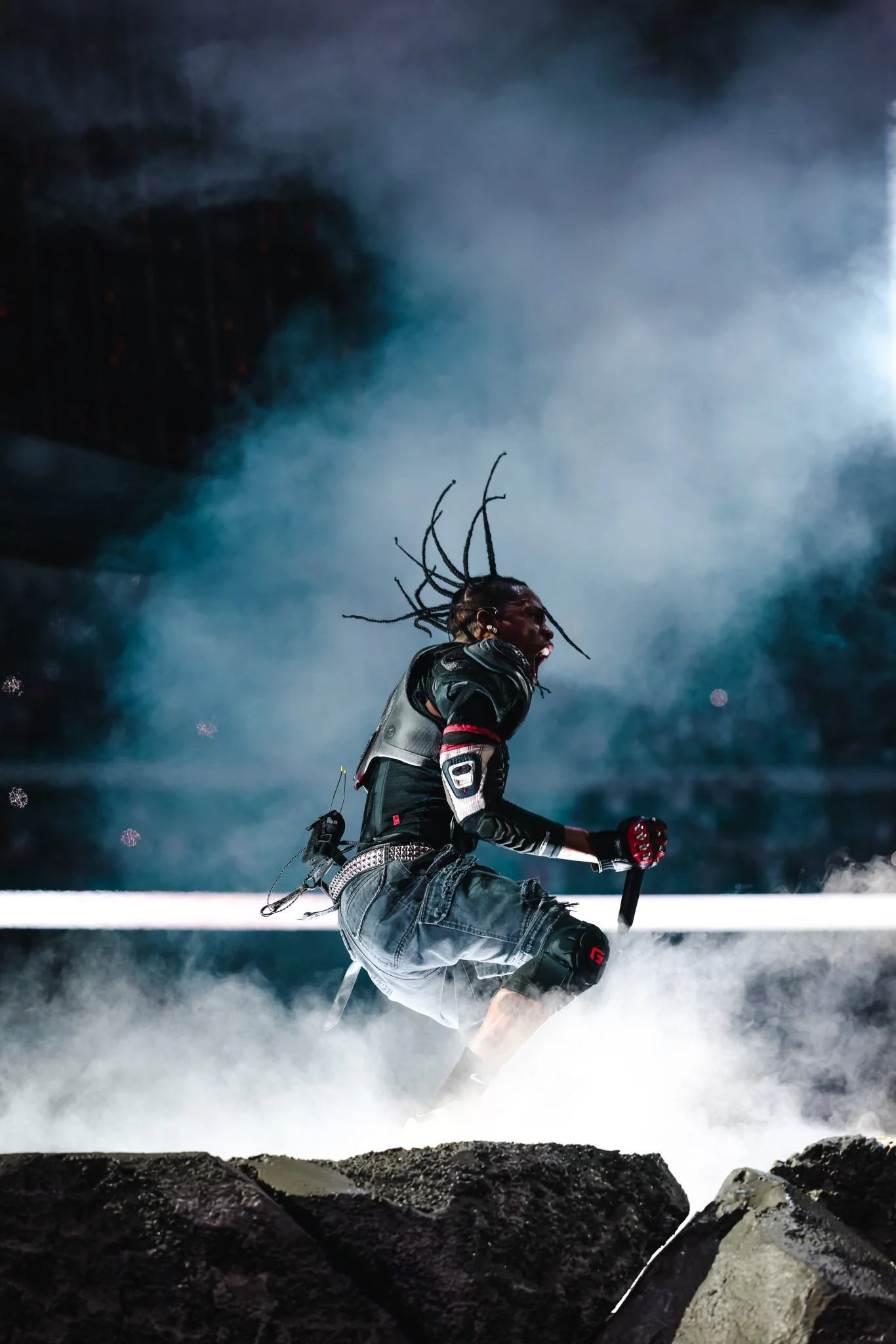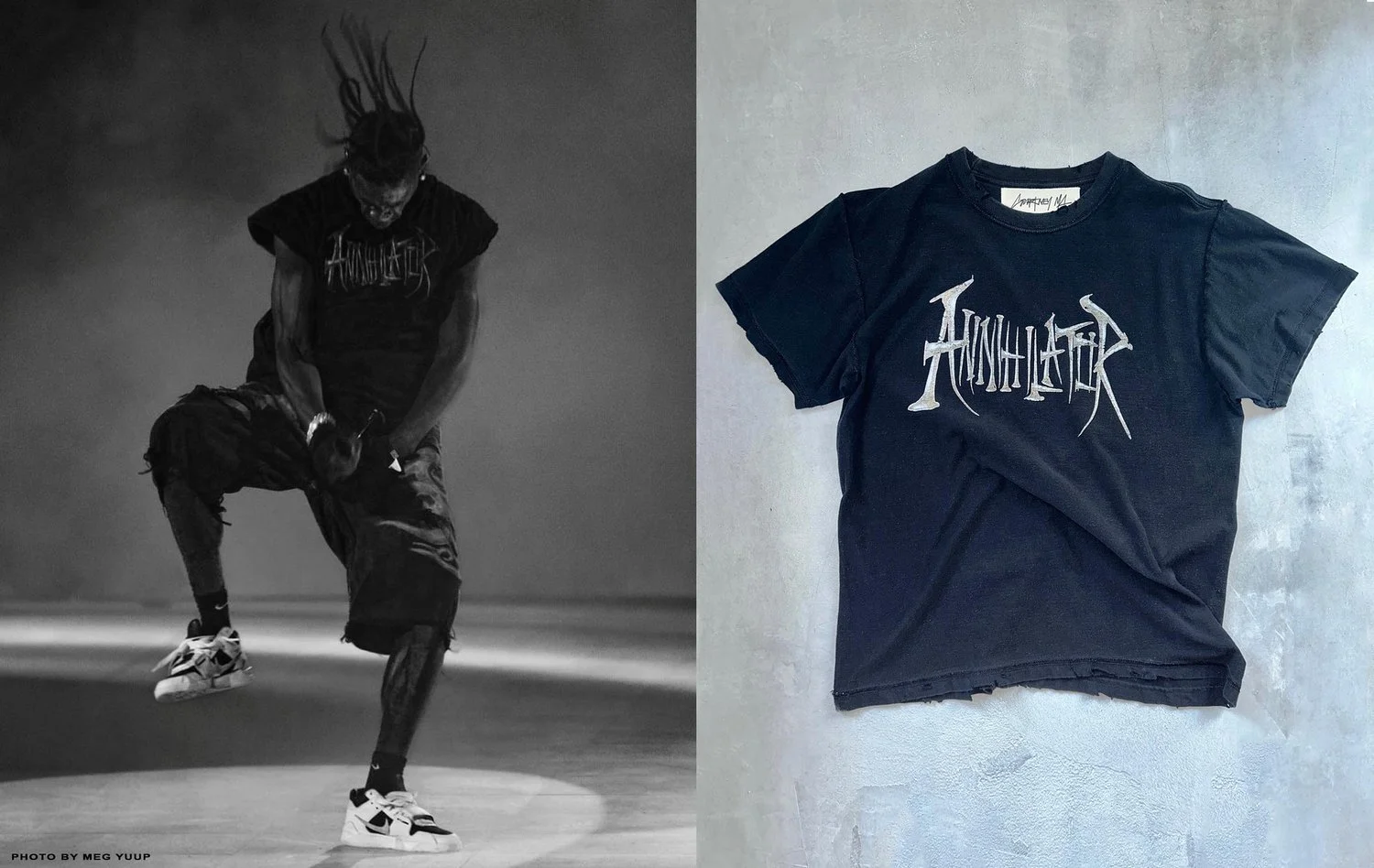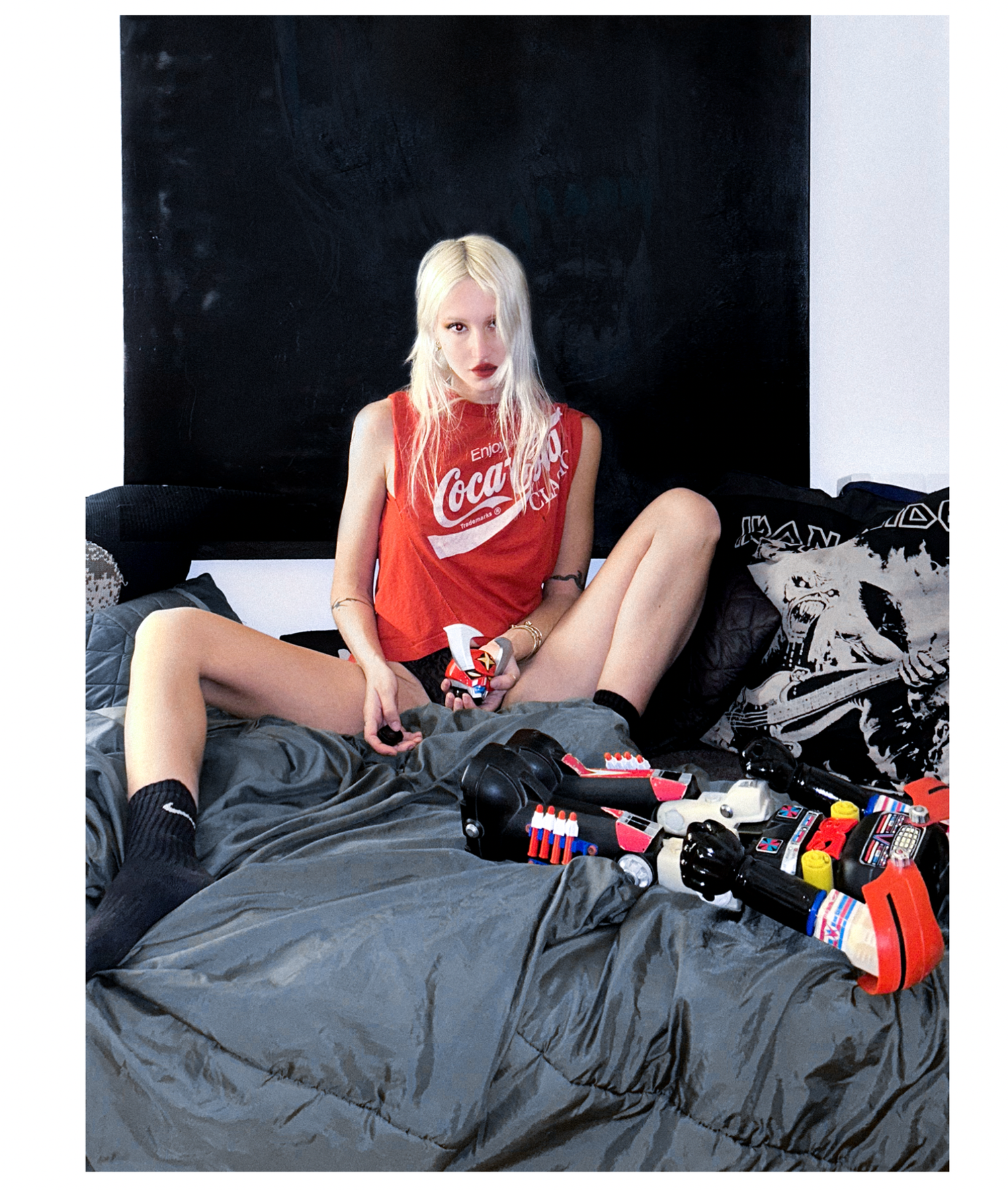"Get a good therapist. And don´t be a bitch." Designer and artist Courtney McWilliams (not just) about fashion
She is definitely not playing around. After working with one of the biggest names in fashion industry including Virgil Abloh or Riccardo Tisci, fashion designer, creative director, stylist and artist Courtney McWilliams aiming for another milestone – she is creating under her very personal sustainable brand Courtney MC. Everything is 100 % handstitched, transformed and upcycled mostly old moto gear pieces with bold, slightly apocalyptic but authentic vibe. The direction is super clear: no more unnecessary waste just some cool renewed and absolutely unique clothes. Recently she created outstanding stage customs for Travis Scott, SZA, Halsey and freshly she was participated at artwork cover for upcoming album of Busta Rhymes #Blockbusta. Oh, and she will have an exhibition, too. Courtney spill some tea about the ego driven industry. Interview is packed with useful insights and healthy opinions not just for the aspiring young designers but for all who seeking truth behind the pretentions facade of high fashion.
Viki Varga: So, let’s start from the beginning of your journey. Do you remember when you first felt connected with fashion and art? When did you realize that you could turn your creativity into self-expression? Tell me something more about your beginnings in fashion and art…
Courtney McWilliams: My love of fashion started when I was about 6, dressing up in my grandma's 70s cruise outfits, and I was always a very creative child, constantly drawing and designing and sewing with my mum. When I was going through school it just wasn't ever presented to us as a career option, and no one ever told me how to pursue this desire to create, so I tried to build a more traditional career path for myself. It wasn't until I was 18 that I realized that non of my adult mentors had a fucking clue and that I had to figure this out for myself. I had always had that rebellious streak in me, but I think when you're creative it's just something that takes over you and you can't be manipulated.
Everything is handsewn because I want to sit and sew every stitch; not only is it important to have a real connection with what you're physically making, but it also cures a lot of anxiety.
VV: Who is Courtney McWilliams in 2023? How would you describe yourself and your brand Courtney MC?
CM: She is a creator, a mother, and a very calm and self-aware woman. It's taken me a long time and a lot of self-work to get to this place in my life. The product brand is small, niche, and really mindfully created. Everything is handsewn because I want to sit and sew every stitch; not only is it important to have a real connection with what you're physically making, but it also cures a lot of anxiety.
VV: What are the principles behind your work? Where do you draw inspiration from and how do you integrate the concept of sustainability into your clothing line?
CM: Well, during my 13 years in the industry, I recognized that luxury was becoming fast fashion for rich people, and some of the products were/are pointless. It just feels very wasteful. So when I made a career change 4 years ago, I really wanted to take note of my personal principles and try to stick to them as much as possible. I was a long-time admirer of Darren Romanelli and the way he built his brand, and wanted to emulate that if I could. So I create based on the vintage clothing that I source, and build the pieces as art pieces, rather than fashion pieces. It's a much slower process working this way, and I think that's actually a great thing.
VV: What are the biggest challenges in fashion you have to face now?
CM: Monetizing anything sustainable is tricky, because of the way the industry works. So the most exciting challenge is to not follow the classic formula, and to embrace the niche market. I also find hype and excessive self-promotion incredibly cringe-worthy, so it's a constant struggle trying to find the right balance in that regard.
Monetizing anything sustainable is tricky.
VV: Who would you most like to design clothes for? Do you have a dream collaboration?
CM: There are a lot of wonderful people I would love to collaborate with, too many to name. I don't want to jinx anything. I prefer to silently manifest it. Travis Scott was manifested for sure, as was SZA.
VV: You've had the opportunity to work with Virgil Abloh on a few projects. What are your memories of this collaboration?
CM: I only worked with Virgil on 'Watch The Throne' but we stayed connected for a long time afterwards. I think, like many people, my memory of working with him is that he was always excited to be creating, and was very kind and calm and giving of his time, despite working like crazy. And he never failed to remind me that we were fashion kids, coming up in the industry at a similar time. He never lost that humility. If there was an ego there it was a very quiet one, and that's why he was so revered.
VV: Do you have any favorite young designers or brands that have caught your eye recently?
CM: Dilara Findikoglu is still my favourite show and I always want to see more from her. And recent discoveries are ASHLYN and KUSIKOHC.
I had hoped COVID would slow things down, but it was quite the opposite, and woke culture enforced a lot of censorship that I find to be quite dull. The result is just a lack of rebellious energy, that I hope forces its way back in.
THE GIVENCHY ERA
VV: Under the direction of Riccardo Tisci, you have created epic stage costumes for Rihanna, Beyoncé, and also collaborated with Kanye West on several of his solo projects (OPIS, H.A.M.). How did you initially secure a position with a prestigious company like Givenchy?
CM: I interviewed with them straight out of school. I'd just got my MA from The Royal College of Art and moved to Paris 2 months later.
VV: In hindsight, how do you reflect on your time at Givenchy? What have these years given you?
CM: Like everything in life, every era is one of many challenges and much growth. It was the next stage of my education. In the decade I was there I learned how to design for a Creative Director, I was fed with a lot of knowledge and inspiration, and was pushed to be more capable than I ever thought I could be. I also learned how a fashion business actually works, and eventually learned how to navigate the many many politics. And in hindsight, 4 years on from that era, I am grateful for every moment, but I definitely couldn't do that all over again.
VV: When you started your era at Givenchy, how did the fashion world seem to you then compared to now? Don't you feel like it was more joyful and authentic in the past? To me, today's collections seem to lack the soul of the creator - everything is hyper-fast and instant. Does the artistic and visual concept of fashion as a cultural phenomenon still have its justification?
CM: I obviously can only speak from my experience, but it was a completely different business to what it is now. What we were creating in 2010 certainly felt more important, more revolutionary, than what we were creating in 2019. And now, I don't see a lot of life-changing collections from the big houses, but maybe that's just the cycle. And in terms of cultural phenomenons, I think it really depends on the brand. Rick is still a powerplayer in that arena, as is Demna, Galliano and Junya.
I think that's what frustrates me, that these concepts have been portrayed so many times in art and life and yet are still seen as being controversial... and ultimately it is because I am describing female darkness, strength, and sexuality. Is it provocative or is it simply human?
VV: What goes on behind the scenes of the big fashion houses? What should people who are interested in fashion know about?
CM: There is so much that goes on, where to start? I think you need to prepare yourself to organize your time between creative and logistics, and set your boundaries in order to do both effectively. I think you need to have a good therapist on call to handle the stress because you need to do a lot of self-work to be an effective creative leader.
And I also know that you need to lose the ego and appreciate that there is a lot of shit that needs to be done to make a collection and you do not have the luxury of sitting and drawing/draping what you want all day. It's really tough and if you're not prepared it will break you. But if you can handle it, it's incredibly rewarding. Oh, and if you want to be a parent at the same time, try and figure all this shit out first, and quickly!
VV: How do you perceive the change in the climate of the fashion scene since your time at Givenchy under Riccardo Tisci? The fashion world has gone through huge turbulent changes - from COVID to woke culture, the war in Ukraine, micro-trends on social media to the absolute absorption of corporate conglomerates. Can anyone still be original?
CM: I feel like all of this change happened so fast and so aggressively. My personal belief is that some people at the top thought there was a simple formula for creative success, and everything fell apart from there. It's been an ongoing game of musical chairs while groups try to make new CDs fit into their rigid frameworks for each brand. I think it's a hot mess in the luxury world right now. You can definitely still be original as a designer, and some independent brands still do it beautifully, but as a brand owned by a group it's much more complicated. I had hoped COVID would slow things down, but it was quite the opposite, and woke culture enforced a lot of censorship that I find to be quite dull. The result is just a lack of rebellious energy, that I hope forces its way back in.
Luxury was becoming fast fashion for rich people, and some of the products were/are pointless. It just feels very wasteful.
CIRCUS MAXIMUS
VV: You recently designed some really cool pieces for Travis Scott's Circus Maximus tour. How did this collaboration come about in the first place? Did you have a free hand in the creation process, or did stylists Nick Royal and Peri Rosenzweig add specific requirements to the project?
CM: I've known Nick for quite a few years so that's how it came about, and because we'd worked together multiple times before the process was so stress free. Both Nick and Peri gave me a brief and some key ideas to stick to, but really let me get on with it, which I massively appreciated. They've both been such great supporters and I love them, and the vision that they created for Travis.
VV: How long did it take, and what was the creative process behind the collection for Travis Scott? Was this collaboration somewhat helpful for your own brand business-wise? Did it open up some new opportunities?
CM: I made quite a few pieces over the last few months, but it definitely wasn't a thought-out collection. It was pretty trial and error as to what made sense for him to wear on stage. It's definitely been helpful for personal recognition, and for confidence in what I'm doing. We all need that. And yes, since then I've had a lot more opportunities open up, so I'm navigating the next stages of the brand carefully.
FASHION HELL
VV: What are the main struggles in the fashion industry? I'm constantly reading about anxiety, mental health issues, countless sleepless nights, endless, tedious overtimes with almost no breaks, hustling 'for references' and other challenging aspects. After all these years, it seems like nothing has significantly changed... What are your personal experiences and observations in this field?
CM: I could write a book on this, but I signed too many NDAs.
VV: Working in fashion requires very thick skin. The toxic environment, constant competition, pressure for bigger profits, and accelerated fame can break even the strongest personalities. How do you perceive the fashion industry and the community that exists within?
CM: It's basically an empire built on narcissism (as most are), and it's a breeding ground for bitches and cliques. There are a lot of fragile egos, and defensive and emotional confrontations to manage. But I think if you can find the right group of people to work with, who have the right energy and lift you up, it can be really productive.
For sure there are some situations where you can't control who you're working with, but then I have to choose whether to remove/distance myself from those interactions.
Right now, I am freelance for this very reason. And it helps me to remember why I love it and why it makes me happy, and to stay kind and professional (and check my ego as much as possible) and lead by that example, and I think most people in the industry respond well to that approach.
VV: Fashion vs. social media. It seems like a love-hate relationship. They can't live without each other but the mutual correlation is sometimes questionable. TikTok 'ruined' fashion, they said, but what in your opinion would fashion be today without the instant flow of visuals, commentary, and everyday online exposure to the consumer?
It would be better. TikTok is awful. Instagram is good for me personally, it's better than LinkedIn for networking. But I don't personally need the constant stream of sponsored visuals. It dilutes everything so I try not to look at it all, and be selective about where I look for my research.
VV: Does objective and knowledgeable professional fashion criticism still exist today?
CM: Yes, just not where it's paid for by advertisers. I'd definitely recommend ShowStudio.
VV: Is fashion still creative?
CM: Yes, but there is definitely a lot of boring shit that gets financed over more creative brands.
You can literally see the power struggle on the runways, much more so now, and yes it does look like the soul has been sucked out of some of these fashion houses.
VV: Define the modern fashion world in five words. And please be honest.
CM: Polluting mafia awaiting creative coup
VV: Do you think the era of creative directors in the big fashion houses still makes sense? Isn't the 'head designer' figure there more like a PR figure, a mascot – an idol who is supposed to fulfill some kind of 'celebrity' standards?
CM: I think it still makes sense for sure. I'd rather have a true designer with a cult following in those positions rather than an influencer. I just wish they'd stop moving around constantly because they lose their impact... Raf Simons for example.
VV: The whole fashion industry has become unhealthily commercialized. Of course, fashion is ultimately business, same as any other, but nowadays, the profit made by a given collection is taken as the only indicator of success. In your opinion, is that okay, or has fashion lost its glitz and glamour? Is fashion a form of art or rather just a business?
CM: Fashion is a business that is led by art/creative vision, so there needs to be a balance. I have personally witnessed collections not immediately make a lot of money, and then those pieces become incredibly sought after years later... which I think is the true test of a good collection. I understand people need to be paid, and that the company needs to be well-enforced with a strong structure, which is why those immediate profits from commercial pieces are important.
However, I think the creative needs to be respected first and foremost, and the CEOs shouldn´t have such a stronghold over product decisions, as is the case in some houses. I have seen a lot of ego-driven suits destroy talent in my time. You can literally see the power struggle on the runways, much more so now, and yes it does look like the soul has been sucked out of some of these fashion houses. The glamour is still there for sure, but I'd like to see more of it.
VV: Do you think there is any universal recipe for breaking into the fashion world and achieving success?
Talent, extreme drive and self-discipline and thick skin... and money.
DARK & LONG
VV: What themes do you reflect in your work? It radiates dark, erotic, animalistic energy. Where do the roots of your inspiration come from, and what is the source of your creativity?
CM: In terms of my paintings/artworks, I think it's a very personal female experience that I'm trying to describe, but it's all instinctual and it's portrayed as art because I don't really know how to describe it vocally. It's definitely animalistic in terms of emotion, playing with the light and dark that will all have inside of us, that we either use to our advantage or fall victim to. It's not meant to be something super deep and morbid, it's really just about life and the beauty of its complexity.
Your work is provocative & controversial, and maybe this word is already archaic, but... rebellious. Who are the rebels of our century, and what are you personally rebellious about?
I don't want to have to be provocative, I think that's what frustrates me, that these concepts have been portrayed so many times in art and life and yet are still seen as being controversial... and ultimately it is because I am describing female darkness, strength, and sexuality. Is it provocative or is it simply human? So, yes that's why I am a little rebellious, out of frustration over people's prudish mentality mainly.
Vivienne Westwood is my rebel hero.
VV: Are you currently working on anything particularly new, and what are your plans for the future?
CM: I'm working on the clothing side of my art primarily at the moment, because I have some interesting collaborations that I need to focus on, and I think there is much more to be done with recycled fashion. I'm also getting back into Creative Direction and have just styled a really gorgeous cover shoot that will be out later this year. The goal is also to keep working towards my next exhibition as well. I'm sitting on so many half-finished projects, I need 10 pairs of hands to do everything I need to do right now. I take the future one project at a time and see what comes from that, it feels like the healthiest and most exciting approach.
VV: If you could give one piece of advice to young fashion designers and creatives, what would it be?
CM: Get as much industry experience as you can, and a good therapist. And don't be a bitch.
Text: Viktoria Varga ©New Translation 2023




